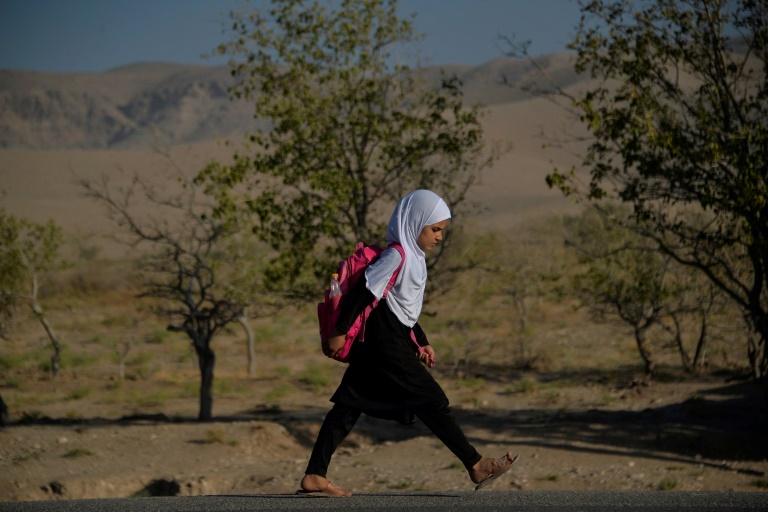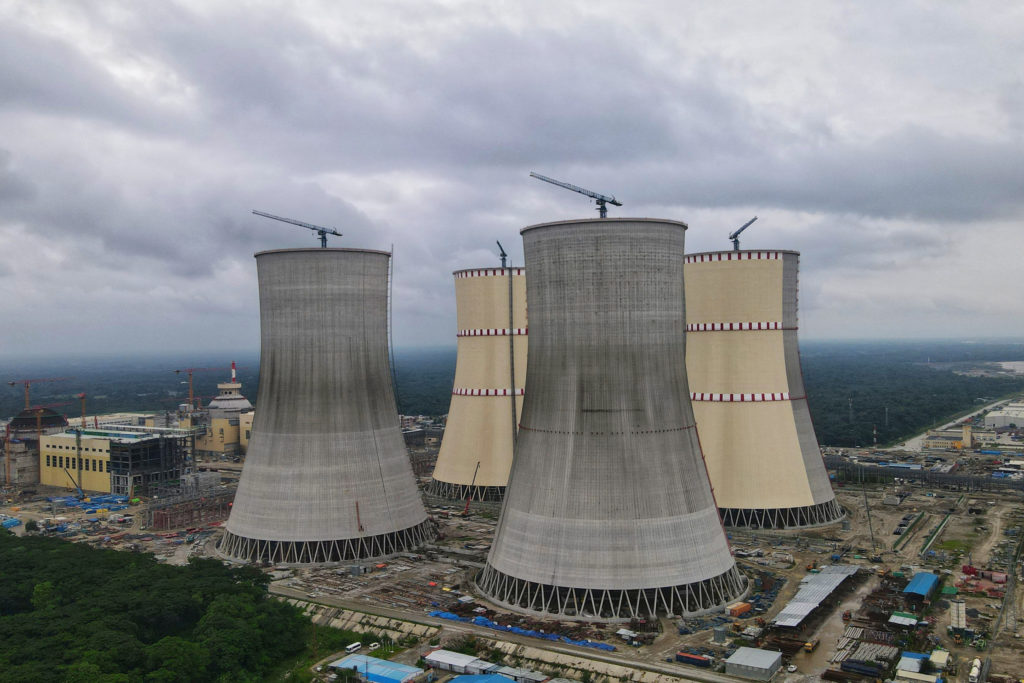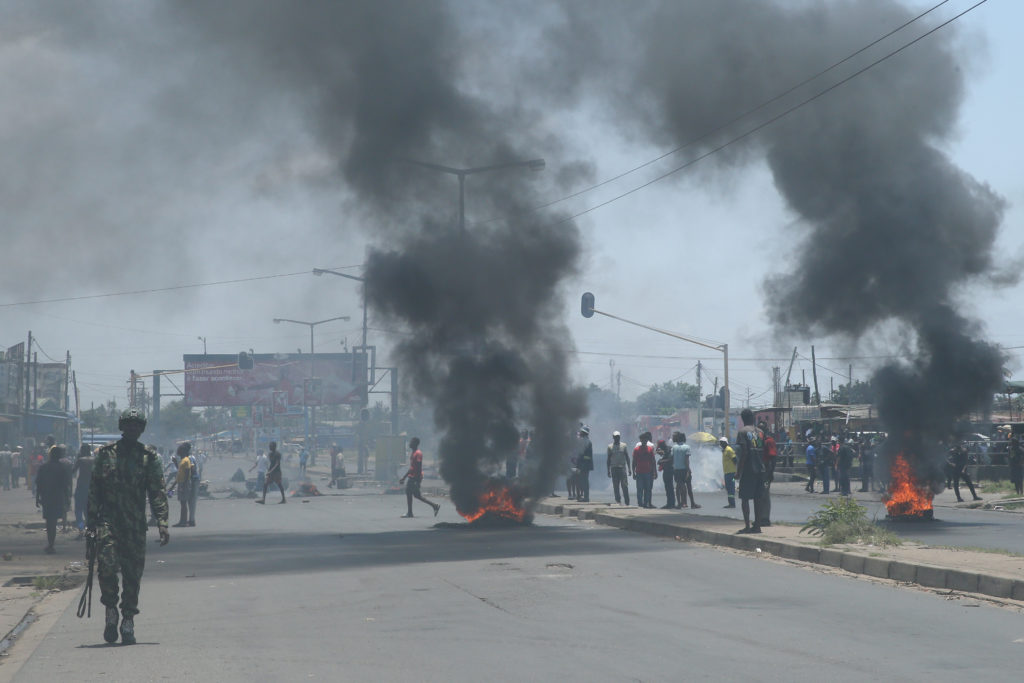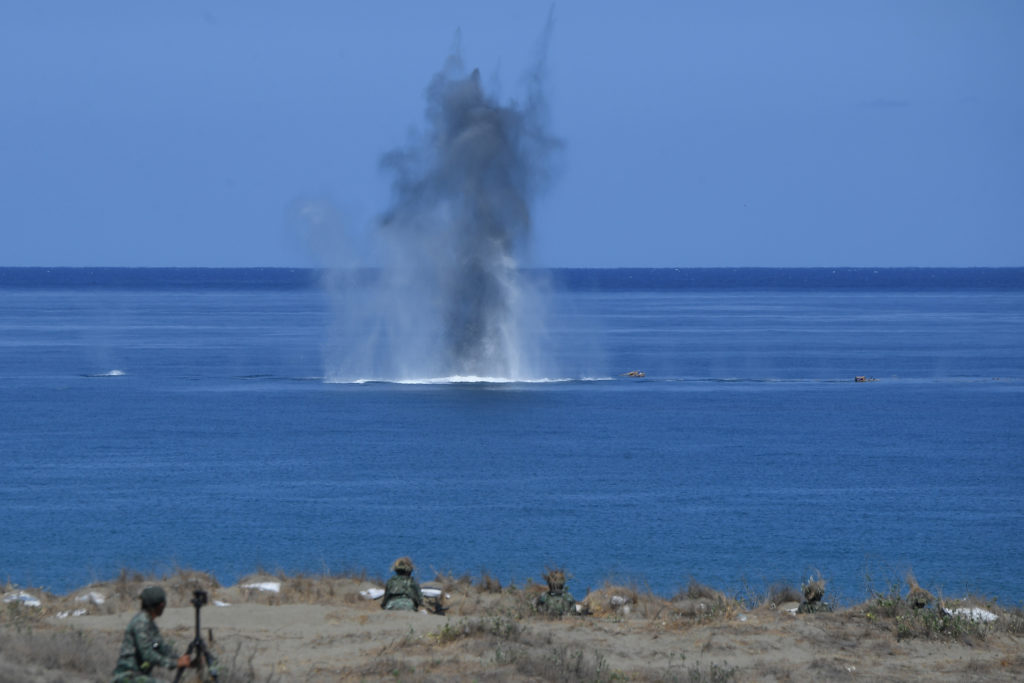Girls have returned to some secondary schools in a northern province of Afghanistan, Taliban officials and teachers said Tuesday, but they remain barred from classrooms in much of the country.
The new hardline government also announced at a stage-managed rally that some women civil servants have been called back to work and a backlog of salaries would be paid, signs the Islamists may be trying to soften their public image after 50 days in power.
A video posted by the group’s spokesman Suhail Shaheen showed dozens of schoolgirls in black, some wearing white head scarves and others with black face veils, sat in chairs waving Taliban flags.
“Girls are going to high schools in Khan Abad, Kunduz Province,” tweeted Doha-based Shaheen, who has been nominated as the new Afghan government’s permanent representative to the United Nations.
But in Kabul, education ministry official Mohammad Abid said there had been no policy change from the Taliban’s interim central government, telling AFP on Tuesday: “High schools still remain closed for girls.”
– ‘No restrictions’ –
The Taliban, notorious for their brutal and oppressive rule from 1996 to 2001, have faced international fury after effectively excluding women and girls from education and work across the country, while incrementally stripping away at Afghans’ freedoms.
They permitted girls to attend primary school from the start, but have maintained that neither they nor their female teachers could return to secondary school yet.
The group have said girls can return to high school once their security and strict gender segregation under the group’s restrictive interpretation of sharia law can be ensured.
Last month Taliban spokesman Zabihullah Mujahid told a press conference that work was “continuing over the issues of education and work of women and girls”, saying schools will reopen “as soon as possible”, without providing a timeframe.
“More time is needed… instructions on how to deal with their work, their services and their education are needed because the system has changed and an Islamic system is in place.”
In the news clip shared by Shaheen, a reporter for Radio Television Afghanistan (RTA) can be heard saying “schools are open for girls, and there are no restrictions”.
A Taliban member is then interviewed on camera saying girls and boys from grades seven to 12 are at school in the district, adding “there are not any issues for anyone so far”.
A headteacher in Kunduz city, the provincial capital, told AFP that girls in a high school in the Imam Sahib district had gone back to classes.
Another teacher in Kunduz also said other high school girls had returned.
“Our principal informed the Directorate of Education at Kunduz and requested them for instructions,” the fourth grade teacher told AFP, speaking on condition of anonymity.
“They replied that the ban on school girls is only applicable to other provinces, and not Kunduz.”
– Salaries being paid –
The Taliban have also restricted women’s access to work.
The group imposed an extreme interpretation of sharia law during their last period of rule and this time round have said progress in women’s rights will be respected “within the framework of Islamic law”.
But interior ministry spokesman Qari Sayed Khosti told AFP on Tuesday that all employees of the passport department “including female employees” were asked to go back to their offices.
Meanwhile a statement published by the Taliban on Facebook said the process of paying government workers their salaries was “underway” after many have gone without remuneration for several months.
The revelation that some Afghan girls were returning to secondary school came on World Teachers’ Day Tuesday.
“For girls’ education, female teachers play an even more important role in Afghanistan,” the UN children’s agency’s country office tweeted, calling for the help, encouragement and protection of women teachers.
Another Kunduz principal, also too nervous to be identified publicly, told AFP the “students are celebrating this day right now”.










